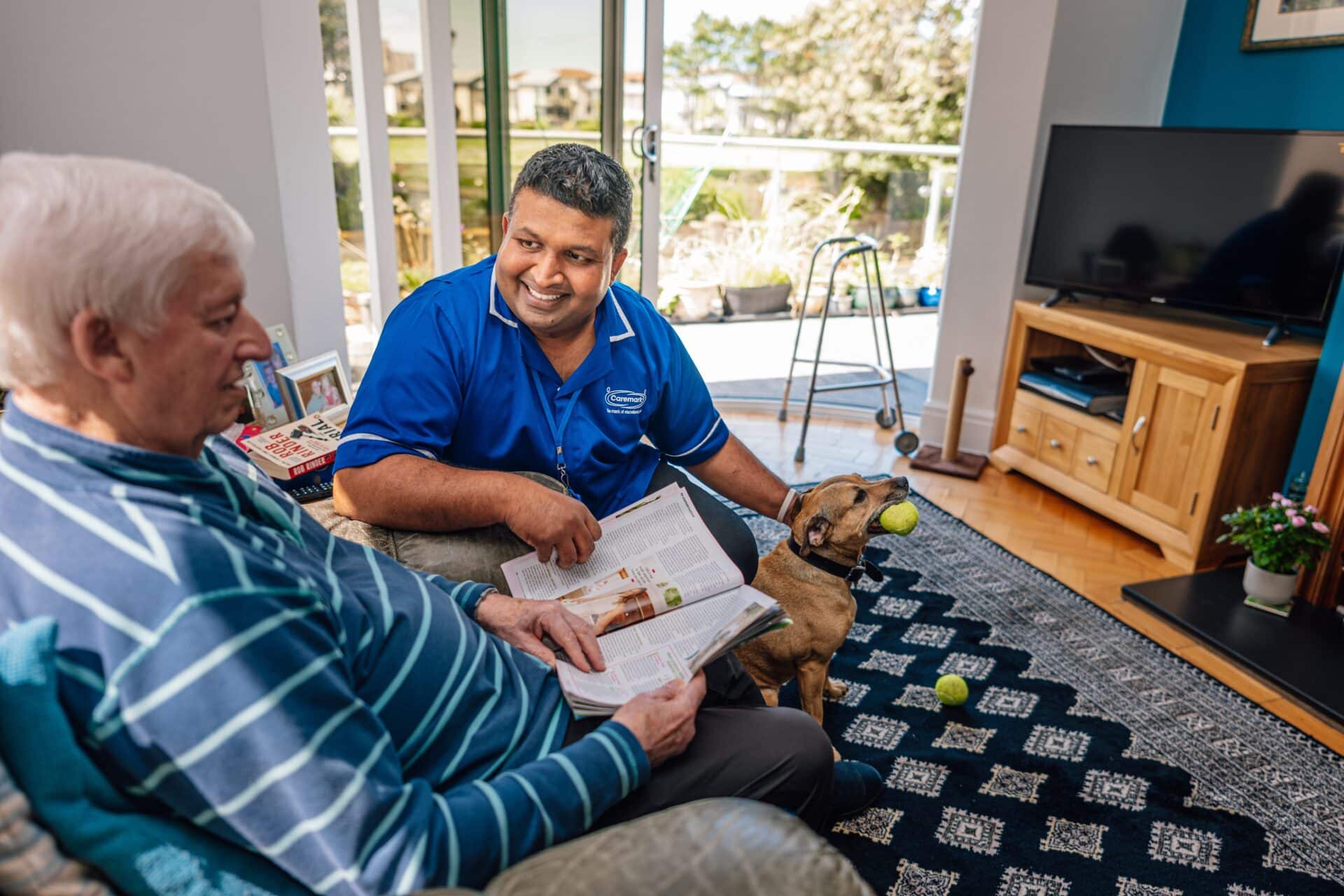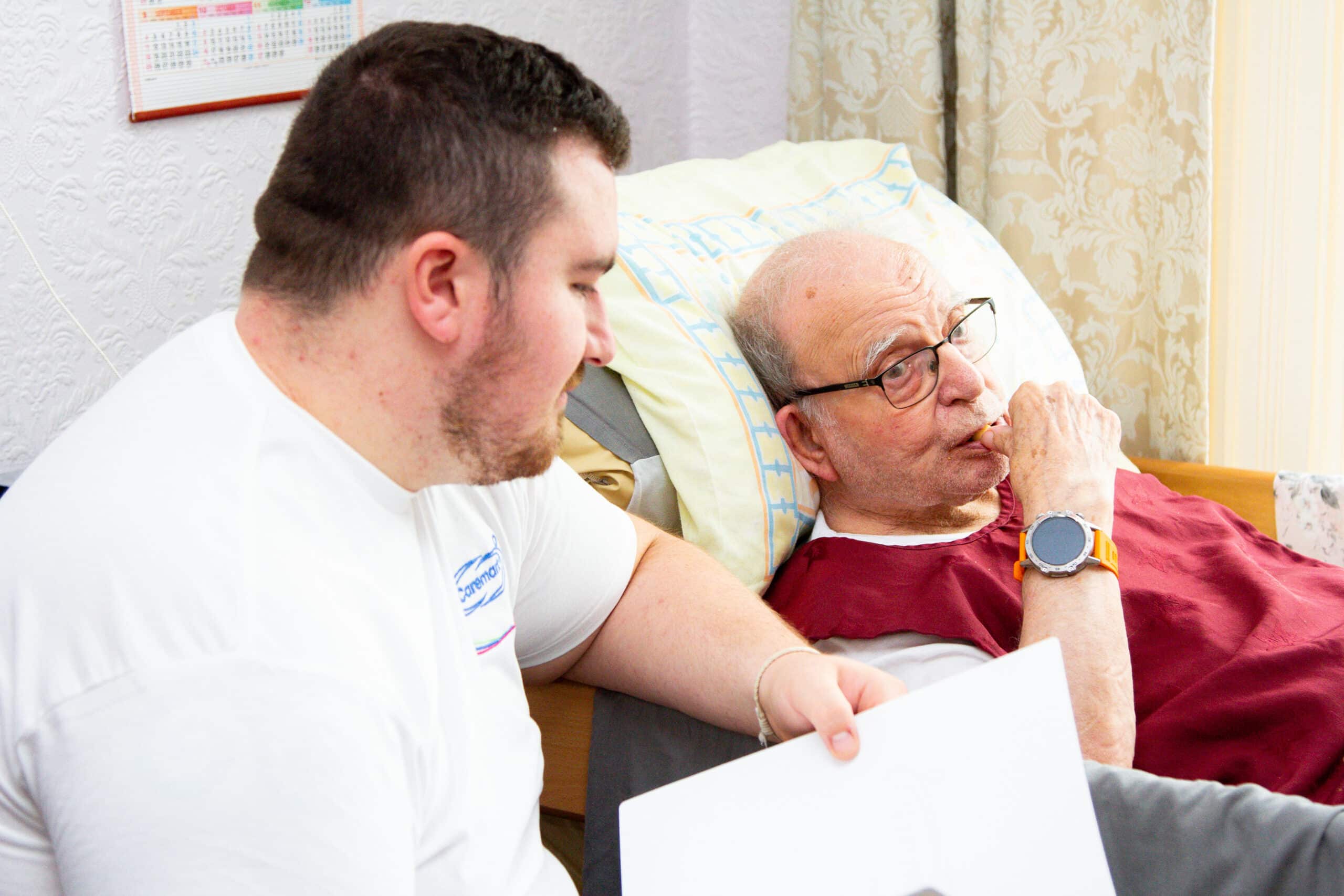Having difficult conversations about future care and support?

Initiating conversations about ‘care and support’ with your parents, family or friends is often extremely daunting albeit necessary. Here at Caremark Cheltenham and Gloucester, we believe its best to do your homework first before you jump in! In this article we share some handy tips on how to tackle such an emotional and stressful time.
The prior preparation you do can transform a potentially stressful conversation into a constructive discussion. By doing so you can be aware of the subtle signs that suggest your loved ones might need additional support.
Regardless of your current situation, it’s likely you will have to engage in many challenging conversations. Not only with your parents, but also with other family members. You’ll need to broach sensitive subjects like money, legal issues, and estate planning. Also, living situations (moving into care home or staying in the family home), care and treatment plans, and last, but by no means least, driving.
These can be sensitive subjects; often perspectives or opinions will differ between family members. However, it is important not to shy away from these difficult conversations about future care and support.
Here are some tips to help make these conversations easier.
Talk early and often about future care and support
The more often you’ve discussed and planned for any future events, the easier it will be when the time comes to make those decisions.
By talking sooner rather than later, it is easier to discuss ‘hypothetical’ scenarios instead of imminent ones. Also, the last thing anyone wants to do is struggle to have critical conversations if they are at crisis point. By talking often, we will know about our loved one’s current wishes and can ensure that plans that were made in the past are still practical and viable. By talking frequently we will be more conscious of any changes in their wishes.

Watch and do your homework before you act about future care and support
If you are suggesting a change for your loved ones, spend time with them and gather accurate, specific information. Review your concerns before you even begin a conversation.
If you want to talk about driving, go out with them in the car and make some valid observations. Worried about their safety at home? You could stay with them for a few days to get a real sense how they are coping. Perhaps the mail is piling up and they are not dealing with any of it. Are they struggling to navigate the stairs? Might they benefit from an additional banister rail, or need a stairlift installed? Are they shopping for themselves and able to prepare healthy meals? Is meal delivery an option? Are they still maintaining a suitable level of personal hygiene? If they have neighbours, talk with them to see if they have noticed anything – try to be objective.
When you’ve got a picture for yourself, explore the different options for support and care for them. If you want them to stop driving as you feel they are unsafe and their reaction times are slow, share alternative transportation options. These could be bus times and frequency which pass their local shops. In addition, if you believe they need support at home, be ready to explain who could help them. This may include family members. Also, discussions need to take place as to how they pay for the care. If you feel that the best option is that they should move into supported living or a retirement village, investigate the different housing options, costs and locations, as well as activities, meals and transportation offered there. Never bring up a change unless you have realistic alternatives to offer.
Approach with love, honesty, concern and support
Remember, you are all on the same team with the shared objective. The best possible care and support and quality of life for your loved ones, whilst they remain as independent as possible for as long as possible. This could be achieved with additional support in their own home or, if needs be, if they move into supported living.
Your loved ones need to know that your thoughts and actions are motivated by your love and concern for them. Be sincere, honest, caring and use clear communication. If you start out with a confrontational and negative attitude, most likely you will sabotage any discussion. If you make it a power offensive, they will feel threatened and be on the defensive themselves.
As a close family member, daughter, son or as a carer, our role is one of support. We are not there to take over their lives, unless they are deemed to be incapable of make decisions due to a cognitive impairment. Remember, you may be in a more supportive role now, but our parents will always be our parents. They will respond much better to a respectful, compassionate attitude. Please don’t parent your parents!
About Caremark Cheltenham and Gloucester
We hope you have enjoyed our first article on tips for ensuring your family and friends are given the right and most appropriate care and support as possible. This is something that we at Caremark Cheltenham and Gloucester hold extremely close to our hearts.
If you would like to read and learn more, we have another article coming soon!